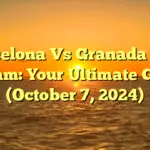Are you a football fanatic eagerly awaiting the next UEFA European Championship? Or perhaps you’re a newcomer curious about this massive international tournament? This comprehensive guide delves deep into the world of football euros, covering everything from its history and format to the excitement of the matches and the impact on global audiences. We’ll explore the tournament’s significance, the strategies employed by teams, and even address practical concerns like accessing matches securely. Get ready to learn everything you need to know to fully appreciate the spectacle of the UEFA European Championship!
The UEFA European Championship, commonly known as the Euros, is a quadrennial international men’s football tournament contested by the senior national teams of the member associations of UEFA (Union of European Football Associations).
The first European Nations’ Cup, a precursor to the
Euros, was held in 1960. Over the years, the tournament has expanded, with more teams participating and the format evolving to incorporate group stages and knockout rounds. The expansion reflects the growing popularity and competitiveness of European football.
The Tournament Format
Group Stages and Knockout Rounds
The Euros typically involve a group stage where teams are divided into groups and play each other once. The top teams from each group advance to the knockout stage, which features a series of single-elimination matches leading to the final.
Key Players and Teams
Notable Champions and Rivals
From Spain’s dominance in recent years to Germany’s historical success and Italy’s resurgence, many nations have made their mark on the Euros. This section will examine some of the most successful teams and influential players in the history of the tournament, including legendary figures like Cristiano Ronaldo and Lionel Messi (though Messi played for Argentina, his impact on football is relevant). We’ll also look at upcoming stars to watch.
The Global Impact of the Euros
Broadcasting and Viewership
The Euros are a global phenomenon, attracting billions of viewers worldwide. This widespread viewership underscores the tournament’s cultural and economic significance, influencing everything from merchandise sales to tourism.
Tactical Analysis: Strategies and Formations
Different Approaches to Success
Different teams employ distinct tactical approaches, ranging from high-pressing, possession-based strategies to counter-attacking formations. We will delve into the tactical nuances of successful Euro teams, analyzing their formations and strategies.
The Role of Technology in the Euros
VAR and Other Innovations
Technology plays a crucial role in modern football, and the Euros are no exception. The introduction of Video Assistant Referees (VAR) has revolutionized decision-making, aiming to improve accuracy and fairness. We’ll also explore other technological advancements impacting the tournament.
The Business of Football Euros
Sponsorships, Broadcasting Rights, and Revenue
The Euros generate enormous revenue through broadcasting rights, sponsorships, and merchandise sales. This section will explore the financial aspects of the tournament and its impact on the football industry.
The Fans and the Atmosphere
The Passion and Energy of Euro Supporters
The Euros are not just about the matches themselves; they’re also about the fervent support of the fans, creating an electric atmosphere in stadiums and across the globe. We’ll discuss the fan culture and its role in creating the overall Euro experience.
Securing Your Online Viewing Experience
Importance of Online Security While Streaming
Many fans opt for online streaming to watch the Euros. Protecting your online security is vital when streaming events. Using a VPN (Virtual Private Network) adds an extra layer of security, encrypting your data and masking your IP address.
Using a VPN for Secure Streaming
How VPNs Protect Your Data
Imagine a VPN as a secure tunnel for your internet traffic. It hides your IP address, making it harder for others to track your online activities. This is crucial for maintaining your privacy while streaming online.
Choosing the Right VPN for Football Euros
Free vs. Paid VPN Options
Several VPN providers offer free services, like Windscribe (with a limited 10GB free data allowance per month) or TunnelBear (offering a smaller free data allowance), but paid options like ProtonVPN provide enhanced features, faster speeds, and broader server networks. Consider your needs and budget carefully.
Setting Up Your VPN for Optimal Viewing
Step-by-Step Guide
Setting up a VPN is generally straightforward. Download the app from the provider’s website, create an account, and connect to a server in your desired location. Instructions may vary slightly depending on the VPN provider.
Comparison of Popular VPNs
ProtonVPN, Windscribe, and TunnelBear
A comparison table will highlight the features, pricing, and performance of popular VPN services like ProtonVPN, Windscribe, and TunnelBear.
| VPN | Free Data | Speed | Security | Price (Paid Plan) |
|---|---|---|---|---|
| ProtonVPN | No | Excellent | Strong | $4-10/month |
| Windscribe | 10GB/month | Good | Solid | $9/month |
| TunnelBear | 500MB/month | Good | Solid | $5/month |
Limitations of Free VPNs
Data Caps, Speed Restrictions, and Privacy Concerns
Free VPNs often have limitations. Data caps restrict the amount of data you can use, speeds might be slower, and some free VPNs have raised privacy concerns. Paid VPNs usually offer a more robust and reliable service.
The Future of the Euros
Potential Changes and Developments
The Euros continue to evolve, adapting to changing trends and technologies. We’ll explore potential future developments, such as further technological advancements and changes in the tournament format.
Frequently Asked Questions
What is the history of the UEFA Euro Championship?
The first tournament, then called the European Nations’ Cup, was held in 1960. It has expanded significantly since then, increasing both the number of participating teams and the complexity of the tournament structure. The evolution reflects the growing global popularity and competitive nature of international football.
How many teams participate in the Euros?
The number of teams has changed over time, starting with just four in 1960. Currently, 24 teams participate in the finals.
What is the format of the Euros tournament?
The tournament is divided into a group stage and a knockout stage. The group stage involves several groups of teams competing in round-robin matches. The top performing teams advance to the knockout stage, which consists of single-elimination matches until a champion is crowned.
How often is the Euros held?
The UEFA European Championship is held every four years.
What are some of the most memorable moments in Euros history?
Memorable moments are numerous and varied. Consider iconic matches like the 2004 final, the upset victories of underdog teams, individual performances like those of Cristiano Ronaldo, and unforgettable goals.
Where will the next Euros be held?
This information is readily available online through official UEFA sources.
Final Thoughts
The UEFA European Championship is more than just a football tournament; it’s a global spectacle that captivates billions of viewers and unites fans from across the world. From its rich history and evolving format to the crucial role of technology and the passionate fan culture, the Euros offer a captivating blend of sporting prowess, cultural significance, and global entertainment. By understanding the nuances of the game, its strategies, and the technological advancements enhancing the experience, we can better appreciate the drama and excitement of each match. This guide has touched upon many aspects of the Euros, but the true experience remains in watching the games and being part of this phenomenal global event. So, gather your friends, secure your viewing plans (perhaps with a reliable VPN like ProtonVPN or Windscribe!), and get ready to witness the thrill of the next UEFA European Championship!





